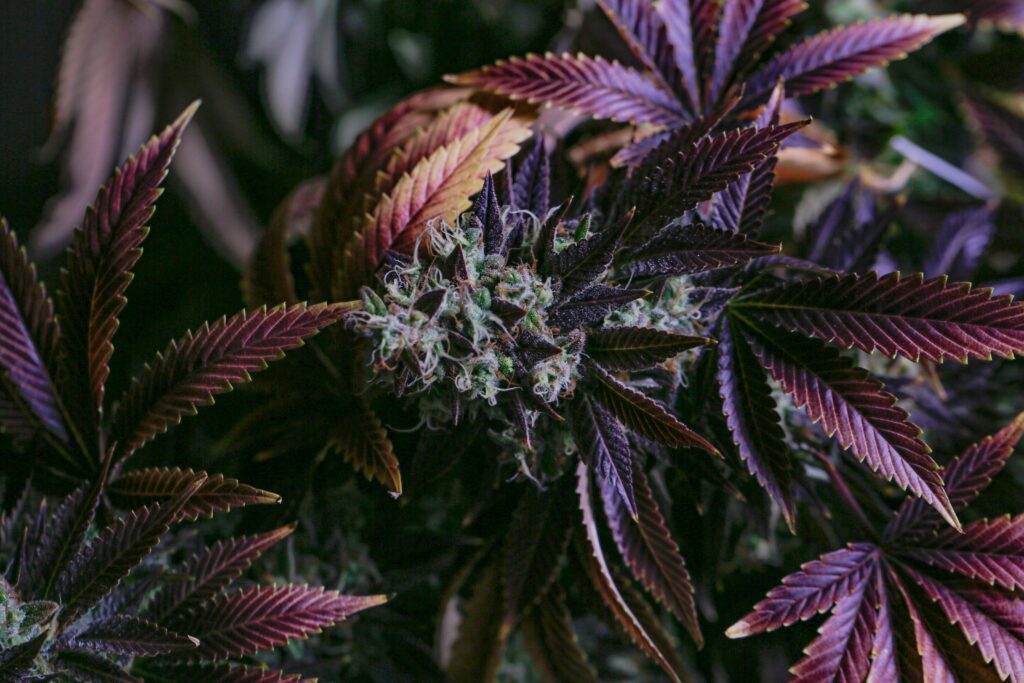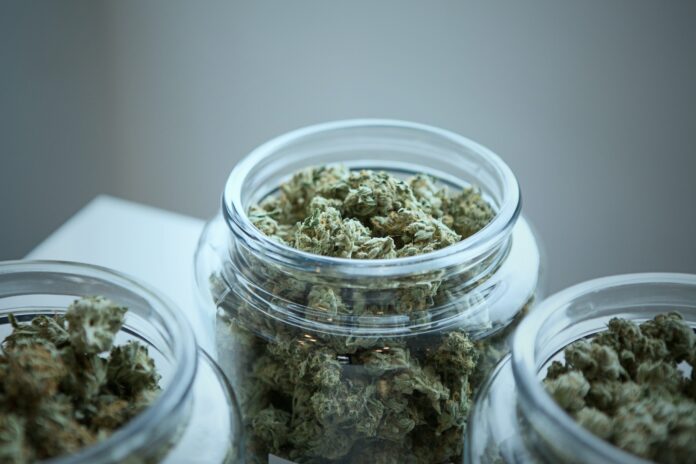THCA has sparked considerable interest throughout the United States, particularly among cannabis aficionados and within smoke shop circles. What sets THCA apart is its intriguing characteristics and legal status.
Unlike conventional methods involving the application of distillates onto flowers, THCA employs a distinct approach. Through genetic engineering, farmers have cultivated a hemp strain abundant in THCA.
Upon subjecting this strain to heating and decarboxylation, THCA undergoes conversion into THC. Remarkably, this particular variant of hemp flower remains legal across the nation.
Unveiling the Benefits of THCA
THCA, the precursor to THC found in cannabis, offers several potential health benefits without inducing the psychoactive effects commonly associated with THC. Some of the reported benefits include:
- Neuroprotective Effects: Studies suggest THCA may protect nerve cells, potentially benefiting neurodegenerative diseases such as Parkinson’s and Alzheimer’s.
- Anti-Nausea and Anti-Emetic Properties: THCA might alleviate nausea and vomiting, particularly for individuals undergoing chemotherapy.
- Potential Cancer-Fighting Properties: Early research hints at THCA’s ability to inhibit cancer cell growth, though more investigation is required.
- Anti-Inflammatory Properties: THCA has shown promise in reducing inflammation, potentially aiding conditions like arthritis and lupus.
- Analgesic Effects: THCA may act as a pain reliever, potentially helpful for chronic pain conditions.
- Anti-Proliferative Effects: Some studies indicate THCA could hinder the proliferation of cancer cells.
- Muscle Spasm Reduction: THCA has shown promise in reducing muscle spasms, beneficial for conditions like multiple sclerosis.

Exploring the Psychoactivity of THCA
THCA products can be found in several local smoke shops and dispensaries. However, it’s crucial to ensure the quality and authenticity of these products by checking for third-party certifications. Following thorough online research and examining different brands, Diamond CBD stands out as a reputable option. They offer a diverse range of products, including THCA flower, along with various other cannabinoids.
THCA in Comparison with Other Cannabinoids
| Cannabinoid | Psychoactive | Primary Effects | Legality | Common Uses |
|---|---|---|---|---|
| THCA | No | Non-intoxicating, Potential anti-inflammatory | Varies by region, often legal | Medical applications, anti-inflammatory |
| Delta-8 | Yes | Milder psychoactive effects, relaxation | Varies by region, often in a legal grey area | Recreational, mild relaxation, medical |
| HHC | Yes | Similar to Delta-9, less potent | Varies by region, legal status unclear | Recreational, medical |
| THCP | Yes | Stronger than Delta-9, potent psychoactive effects | Varies by region, often in a legal grey area | Recreational, potent effects |
| Delta-10 | Yes | Milder than Delta-9, focus and creativity | Varies by region, often in a legal grey area | Recreational, creativity and focus |
| Delta-9 | Yes | Psychoactive, euphoria | Varies by region, often illegal | Recreational, medical, euphoric effects |
Analyzing THC and THCA Side by Side
The key contrast between THCA and THC lies in their psychoactive effects; THCA does not induce the typical intoxication associated with THC. THCA needs to undergo decarboxylation, usually through heating via methods like smoking, vaping, cooking, or dabbing, to transform into THC. This structural change allows THC to interact with CB1 receptors in the body.
Regarding their effects, THCA and THC do overlap in some aspects. Both may help alleviate nausea, yet THCA shows particular promise in combating inflammation. However, due to its non-intoxicating nature, THCA might be less potent than THC when it comes to aiding sleep. On the other hand, while THC is generally not recommended for seizure disorders, THCA has displayed potential in addressing such conditions.
Demystifying THCA
HCA, or tetrahydrocannabinolic acid, serves as the predecessor to THC within the cannabis plant. As the plant progresses through its growth phases, its buds evolve, developing terpenes and cannabinoids, beginning with CBGA,, recognized as the “founder of all cannabinoids.” Eventually, CBGA undergoes a transformation into primary cannabinoids like THCA and CBDA.
THCA does not elicit intoxicating effects owing to its molecular composition, which includes an additional carboxyl ring that restricts its interaction with brain receptors responsible for inducing a high.
Although THCA itself does not cause a high, its significance lies in its role as a precursor to THC, renowned for its diverse health advantages. The presence of THCA in cannabis buds or flowers is most prominent in the pistils and trichomes, notably observable as the plant nears its harvest, especially in controlled indoor growing environments.
While raw cannabis plants primarily produce THCA, there has been some industry confusion regarding its differentiation from THC. When subjected to heat – through smoking, vaping, or dabbing – THCA undergoes conversion into THC, the psychoactive cannabinoid highly valued within the cannabis community.
Locating THCA Products
THCA products can be found in numerous local smoke shops and dispensaries. Ensuring the quality and authenticity of these items is crucial, and it’s advisable to look for third-party certifications. Following thorough online research and assessing different brands, Diamond CBD has established itself as a reputable choice. Their product range includes THCA flower and a diverse selection of other cannabinoids.
THCA and its Relevance in Drug Testing
Indeed, there is evidence indicating that THCA might appear on a drug test. Despite THCA being the non-psychoactive precursor to THC, standard drug tests generally don’t distinguish between different forms of THC. They are designed to identify the presence of THC or its metabolites (such as THC-COOH) in the system.
Concluding Remarks on THCA
THCA, also known as tetrahydrocannabinolic acid, has garnered significant attention in the U.S., especially within the cannabis community. Unlike THC, THCA lacks psychoactive properties and doesn’t cause a high. It naturally occurs in raw cannabis and transforms into THC when exposed to heat, such as during smoking or cooking.
THCA is renowned for its potential health advantages, including anti-inflammatory and neuroprotective effects, and its use in alleviating issues like nausea and muscle spasms.
Despite its non-intoxicating nature, THCA might register on drug tests due to its conversion into THC. These products are available in smoke shops but should undergo third-party testing to ensure quality.
